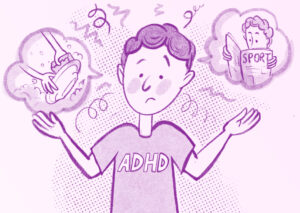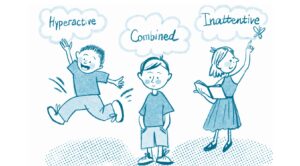Relationships shape much of our emotional experience and well-being. Healthy relationships nurture growth, support, and happiness. But what happens when a relationship becomes toxic? Toxic relationships can drain your energy, damage your self-esteem, and severely impact your mental health. Whether it’s a romantic partnership, friendship, family bond, or workplace connection, dealing with toxicity is essential for your emotional survival and growth.
In this comprehensive guide, we’ll explore how to recognize toxic relationships, understand their effects, and learn practical strategies to cope, heal, and move forward.
Table of Contents
ToggleWhat Is a Toxic Relationship?
A toxic relationship is any relationship where the behavior of one or both parties causes harm, distress, or negativity over time. Toxicity can manifest in many ways, including manipulation, control, disrespect, constant criticism, emotional neglect, or even abuse.
Unlike occasional conflicts that are natural in any relationship, toxic relationships feature a persistent pattern of dysfunction that undermines your well-being.
Signs You Are in a Toxic Relationship
Recognizing toxicity early can help you take action before the relationship severely affects your mental health. Here are common signs of a toxic relationship:
1. Constant Criticism or Belittling
Instead of constructive feedback, there is ongoing criticism that damages your confidence and self-worth.
2. Lack of Support
Your achievements and feelings are dismissed, ignored, or minimized, leaving you feeling unsupported and isolated.
3. Manipulation and Control
The other person tries to control your actions, decisions, or social connections through guilt, threats, or coercion.
4. Frequent Drama and Conflict
The relationship is marked by repeated arguments, tension, and instability with little resolution.
5. Feeling Drained or Anxious
After interacting with the person, you often feel exhausted, anxious, or emotionally depleted.
6. Lack of Trust
There is suspicion, dishonesty, or betrayal that prevents a genuine connection.
7. Disrespecting Boundaries
Your personal boundaries are ignored or violated, making you feel unsafe or undervalued.
Why Toxic Relationships Are Harmful
Toxic relationships can:
- Increase stress and anxiety
- Lower self-esteem and confidence
- Contribute to depression and feelings of hopelessness
- Impact physical health through disrupted sleep, appetite changes, or fatigue
- Impair your ability to trust or build healthy future relationships
Acknowledging the harm is the first step toward reclaiming your emotional well-being.
How to Deal with a Toxic Relationship: Practical Strategies
1. Acknowledge the Problem
Denial or minimizing the issue often prolongs pain. Accepting that the relationship is toxic helps you clarify your feelings and focus on change.
Tips:
- Reflect on how the relationship affects your emotions and daily life
- Journal your thoughts or talk to a trusted friend or counselor
- Recognize your right to healthy, respectful relationships
2. Set Clear Boundaries
Boundaries protect your mental and emotional space. Clearly define what behavior you will and will not accept.
Tips:
- Communicate your limits calmly and assertively
- Be consistent in enforcing boundaries
- Use “I” statements to express your feelings without blame (e.g., “I feel hurt when…”)
- Prepare to walk away if boundaries continue to be ignored
3. Limit Contact or Take a Break
If possible, reduce interaction with the toxic person to safeguard your mental health. This may mean spending less time together or taking a temporary break.
Tips:
- Use technology to create distance (block or mute when needed)
- Avoid situations where conflict often arises
- Inform mutual contacts about your need for space, if appropriate
4. Seek Support
You don’t have to face toxicity alone. Support from trusted friends, family, or mental health professionals can offer perspective and strength.
Tips:
- Join support groups for people dealing with similar experiences
- Talk openly with loved ones about your feelings and decisions
- Consider counseling or therapy to build coping skills and process emotions
5. Focus on Self-Care
Toxic relationships drain energy and self-worth. Prioritizing self-care rebuilds your resilience and self-esteem.
Tips:
- Engage in activities that bring joy and relaxation
- Maintain a healthy routine with good sleep, nutrition, and exercise
- Practice mindfulness, meditation, or journaling to manage stress
- Celebrate small victories and practice positive self-talk
6. Evaluate Your Options
Depending on the relationship type and severity of toxicity, you may need to consider ending it for your well-being.
Tips:
- Weigh the pros and cons of continuing the relationship
- Plan a safe and thoughtful exit if needed, especially in cases of abuse
- Remember that ending a relationship can be an act of self-love and healing
Healing After a Toxic Relationship
Leaving or distancing yourself from a toxic relationship is often just the beginning. Healing takes time and effort but is absolutely possible.
Steps to Healing:
- Allow Yourself to Grieve: It’s normal to feel sadness, anger, or confusion. Accept these emotions as part of the process.
- Reflect and Learn: Understand the patterns that led to toxicity to avoid similar relationships in the future.
- Rebuild Self-Confidence: Engage in activities that empower and affirm your worth.
- Re-establish Trust: Take gradual steps to trust yourself and others again.
- Seek Professional Help: Therapy can provide tools and support for recovery and healthier future relationships.
When to Seek Professional Help
If a toxic relationship causes ongoing emotional distress, depression, anxiety, or physical harm, professional intervention is crucial. A psychologist like Arpan Sarma can help you:
- Develop coping strategies
- Work through emotional trauma
- Build healthy relationship skills
- Plan safe exits if necessary
Conclusion: Reclaiming Your Life from Toxicity
Toxic relationships can weigh heavily on your mental and emotional health, but you have the power to change your story. Recognizing toxicity, setting boundaries, seeking support, and practicing self-care are vital steps toward healing.
Your well-being matters, and healthy, respectful relationships are your right—not a privilege. Whether you’re struggling now or supporting someone else, take steps today to foster healthier connections and reclaim your happiness.
Remember, you’re not alone. Help is available, and brighter days lie ahead.







